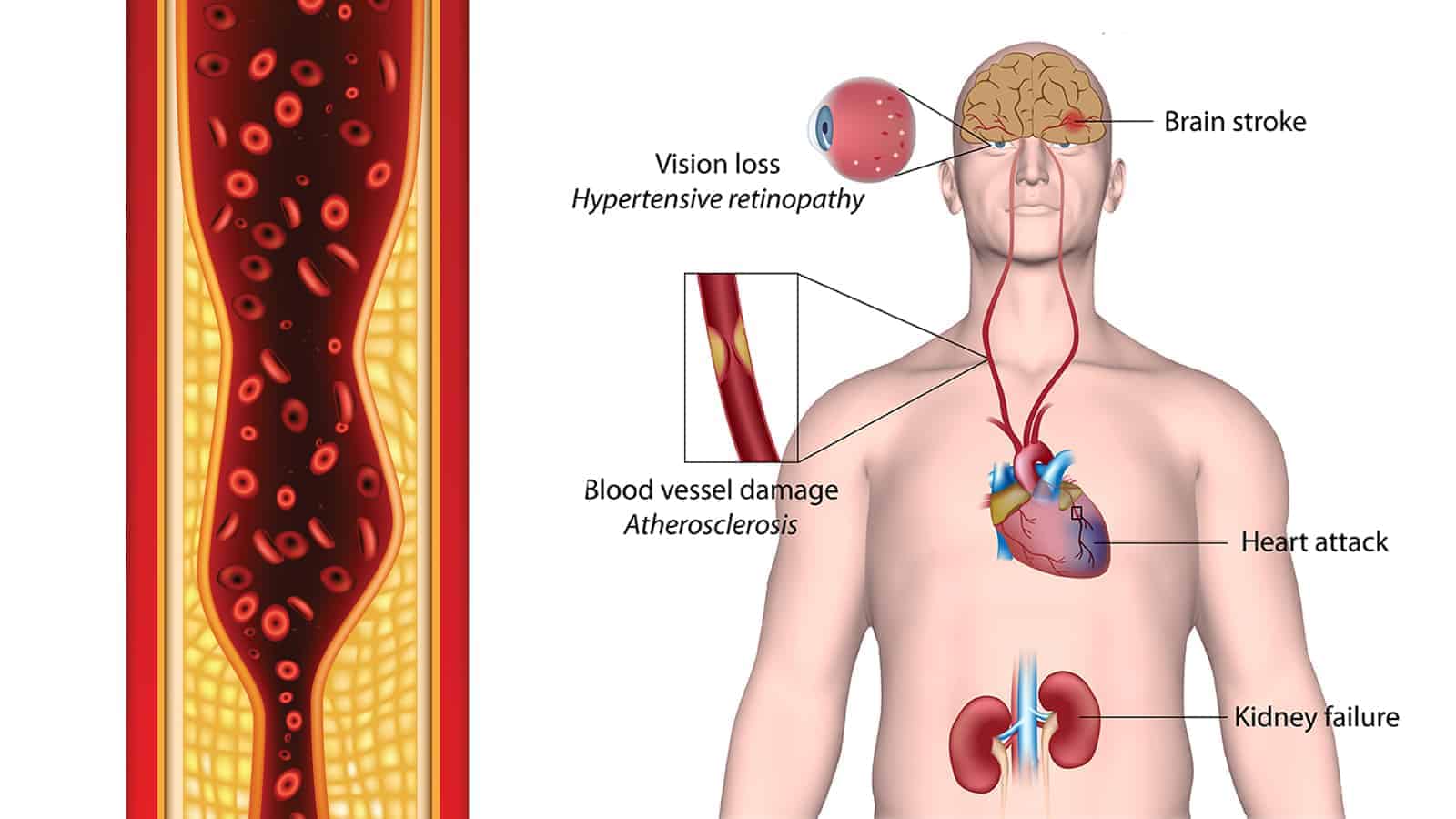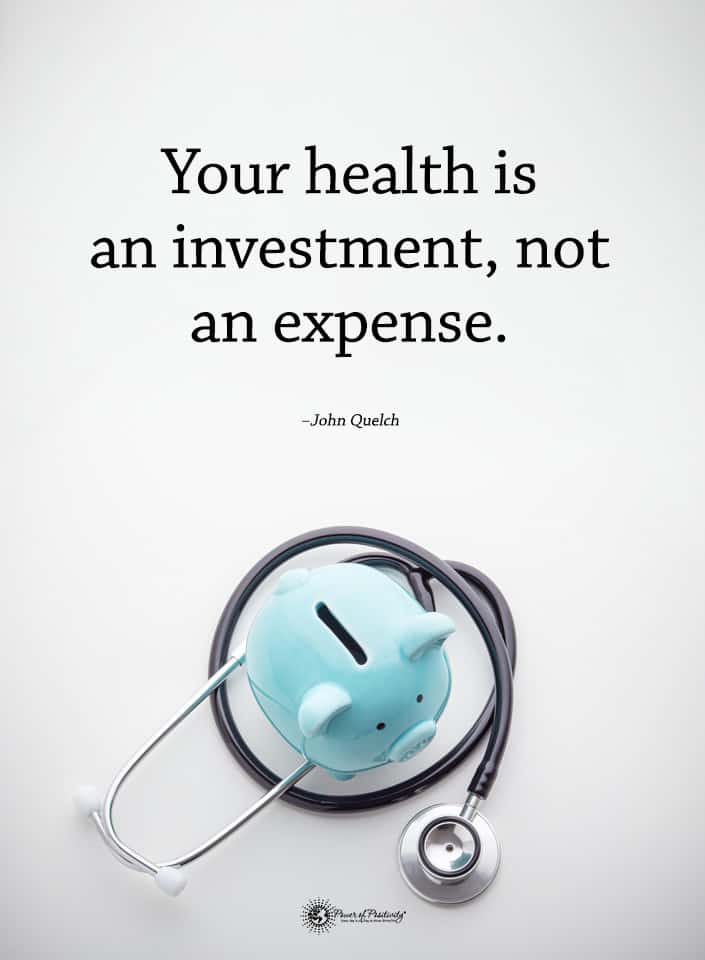At some point, you’ve likely heard family members, friends, and doctors talk about blood pressure and probably hypertension. Blood pressure is a measure of the force of the blood against your blood vessel walls. This force must remain at an ideal range or it could be dangerous for your health.
Your blood pressure is determined by a test that gives the reading in two numbers. The reading is written as one number over the other, followed by “mmHg”. The top number called the systolic blood pressure should be at or close to 120. The top number, called the diastolic blood pressure, should be at or close to 80.
High blood pressure is when your blood pressure levels are too far above the normal range of 120/80 mmHg. This is dangerous, especially for an extended period, because it means that your heart is working too hard to circulate your blood through your body. “It can damage your left heart chamber and weaken the heart muscle,” says Benico Barzilai, MD, Head of Clinical Cardiology at the Cleveland Clinic.
Hypertension is completely avoidable, meaning that it’s mainly caused by lifestyle choices.
Ten Frequent Causes of Hypertension
Here are ten causes of high blood you should never ignore. And once you know them, you should avoid them.
1. Eating too much salt.
Salt is one of the main culprits of hypertension. Too much of it can cause serious damage to your heart and kidneys. Unfortunately, salt is added to almost all processed foods as well as restaurant foods these days, so it can be hard to avoid it.
As you eat salt, the sodium flows to your kidneys. Your kidneys need sodium as well as potassium to filter out toxins from your blood. However, if there is too much sodium, it can make it hard for your kidneys to filter fluid.
Think of it as a water filter that gets too clogged with impurities and can’t filter water very well. You can easily change the water filter. Kidneys are not so easy to change.
If your kidneys have trouble filtering fluid, the fluid will build up in your veins and raise your blood pressure. Eventually, it will also permanently damage your kidneys.
2. Being overweight.
It shouldn’t be a surprise that obesity causes high blood pressure. Obesity is a risk factor for most conditions and diseases. Being overweight throws off every function in your body.
Cardiovascular diseases (like hypertension) are the leading causes of mortality across the globe. The main side effect of obesity is cardiovascular diseases. To put it in simple terms, being overweight strains your heart.
Obesity causes high blood pressure in more than one way since it affects so many different bodily functions. One of the main ways is by stimulating the sympathetic nervous system (SNS) too much. This bodily system is responsible for your “fight or flight” response to stressful situations.
The SNS heightens your alertness by pushing extra glucose into the blood and extra blood into the muscles. This automatically means there is more blood pressure on your veins. For short-term moments, this is completely safe, but obesity causes this to happen long-term which leads to a sustained high blood pressure.
3. Eating a poor diet.
It’s been said time and time again that a poor diet is bad for you. It will make you unhealthy, make you gain weight, make you sluggish, and make you a whole host of other bad things. Unfortunately, high blood pressure is also a side effect of a poor diet.
The reason for this is mainly from a point that was discussed earlier – too much salt. Unhealthy foods are loaded with salt as well as trans fats (the bad fats). You already know what the salt will do.
Trans fats increase bad cholesterol (LDL) and decrease good cholesterol (HDL). Bad cholesterol can clog your arteries causing the heart to pump harder to push blood through. This leads to high blood pressure.
4. Nicotine.
Smoking is incredibly dangerous for your heart. It can cause a combination of things on this list, essentially guaranteeing high blood pressure and dramatically increasing your risk of a heart attack or stroke. According to the American Heart Association, tobacco usage causes one-third of the deaths from coronary heart disease each year.
Smoking narrows your arteries and makes the artery walls hard. This causes major stress on your heart. The nicotine in cigarettes is the problem. It’s an extremely addictive chemical that keeps you wanting more even while it’s killing you.
5. Genetic risk factors.
Genes can play a role in whether you have high blood pressure or not. While they aren’t 100% responsible (because lifestyle choices play a bigger role over genetics), they do play a part in increasing certain risks.
One example lies in racial disparities. Though scientists and medical experts haven’t figured out why there are racial disparities among high blood pressure cases, African Americans tend to have high blood pressure more than any other race. They are also more likely to get it at an earlier age than other races.
Family history also plays a part. If your family has a long history of dealing with high blood pressure from generation to generation, there is a good chance that it will pass down to you. However, making healthy choices in life can decrease your risk, so it’s important to live as healthy as possible.
 6. Being stressed out a lot.
6. Being stressed out a lot.
In today’s society, it can be hard to avoid stressful situations. However, being this way can indirectly lead to high blood pressure as well as other medical problems. It’s important to keep in mind that short-term stressful situations are okay. It’s dealing with stressful situations constantly that causes the problem.
Stress causes the same effect as smoking (without the icky chemical that damages your body). It causes a surge of hormones and blood to flow in your body, leading to temporary high blood pressure. However, when stressful situations aren’t managed properly, high blood pressure doesn’t go away.
You should find healthy ways of managing stressful situations to keep your blood pressure under control.
7. Lack of exercise.
Not getting enough exercise can indirectly lead to hypertension. Exercise keeps you healthy. It keeps your weight under control, keeps your glucose levels in check, and keeps your fat and muscles perfectly balanced.
Exercise also keeps your heart healthy and helps reduce the effects of stressful situations. Knowing that exercise does all of this, it’s easy to see why a lack of exercise can contribute to high blood pressure.
Research suggests that both the systolic and diastolic blood pressure numbers of people who regularly exercise are 5–7 mmHg lower than those who don’t. More specifically, people have an immediate reduction in the systolic number after working out and this reduction persists for at least 24 hours.
8. Pregnancy.
Pregnancy can cause hypertension, even if the mother had no prior history of it before the pregnancy. After all, the mom-to-be has extra blood, nutrients, and more flowing through her veins and arteries to grow the baby. It makes sense for pregnant women to have elevated blood pressure.
There are two types of high blood pressure that pregnant women can have. The first one is gestational. This type only happens while the mother is pregnant, and it goes away when she gives birth. With this kind, there won’t be any other problems with the heart or kidney – just the elevated numbers.
The second type is preeclampsia. This type is dangerous for the mother and the baby. It happens when the mother’s blood pressure acutely spikes out of nowhere and she presents other heart and kidney problems. Preeclampsia should be taken care of as soon as possible so it doesn’t get worse.
9. Sleep Apnea
According to the American Sleep Apnea Association, it’s estimated that over 22 million people in the United States have sleep apnea. It’s quickly become an epidemic with men over 40 years old being the most at-risk group. Obesity contributes to a high number of sleep apnea cases as well.
Sleep apnea causes people to snore and stop breathing periodically while they are sleeping. This leads to a low level of oxygen in the blood. Low oxygen triggers the body’s blood pressure to rise to make up for the lack of oxygen. This, along with the interruptions in breathing, is dangerous to your cardiovascular health.
10. Diseases or disorders.
Several diseases or disorders can cause high blood pressure. When this happens, it’s called secondary hypertension. Some of these diseases and disorders are preventable because they occur due to bad lifestyle choices. Others may not be preventable. Some of the diseases and disorders (that haven’t been discussed already) include:
- Lupus
- Scleroderma
- Glomerulonephritis
- Thyroid problems
- Cushing’s disease
- Phaeochromocytoma
- Polycystic kidney disease
 Final Thoughts on Why Everyone Should Learn the Causes of Hypertension
Final Thoughts on Why Everyone Should Learn the Causes of Hypertension
High blood pressure is such a common problem in the United States now that many people aren’t surprised to find out someone has it. A lot of the blame can be put on processed foods and overall poor choices where health is concerned. However, no matter where the blame falls, it’s a problem that needs a lot more attention.
The causes that are listed above aren’t the only causes of hypertension, but they are the most common ones. If you’re trying to get your blood pressure under control, this list gives you a good starting point on fixing the problem. Even if you’re just learning more about high blood pressure, it gives you a good idea of the things you should avoid to keep your blood pressure at a healthy and balanced level.


















